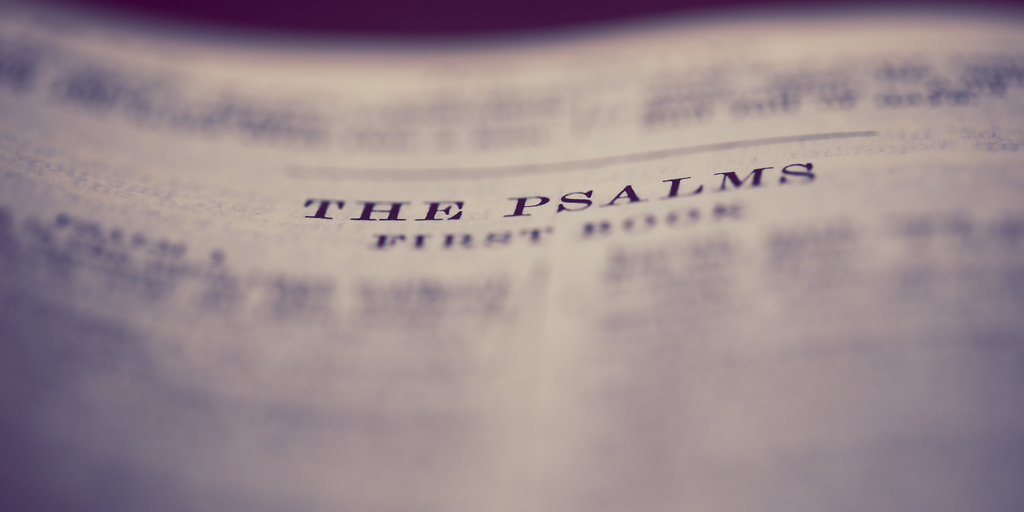“The Sixty-first Psalm”

Unlike the two previous psalms, the sixty-first does not indicate the circumstances that led to its being written. That it was David’s own experience we do not doubt; it has also been that of the people of God at all times, and will yet be the language of a remnant of God’s earthly people in a day now fast approaching.
The Hebrew word Neginah in the heading would seem to signify that this psalm was to be accompanied by an instrument of one string only, in harmony with the solitary feelings of the psalmist at that time.
King David, after unburdening his heart before the LORD, may have directly sent his utterances to one of his musicians (Heman, Jeduthan or another) who would be able to set them to appropriate melody, for the service of Jehovah by His earthly people, over whom he reigned as king (on God’s behalf) and for whom he was a representative man.
Commencing with a cry, the psalm ends with a song.
- Hear my cry, O God; attend unto my prayer.
His bitterness of soul caused David to cry to God, but as the cry changes into prayer he gradually becomes calmer.
“Art thou afflicted? O beloved, pray! Why in grief’s darkening twilight still abide?” - From the end of the earth will I cry unto Thee, when my heart is overwhelmed: lead me to the Rock that is higher than I.
It is to God he turns; even should he be far from the place where Jehovah had set His name. To be absent from Zion was to him as “the end of the earth,” but it was something higher than the hill of Zion his soul needed; David’s spirit yearned for the comfort of the “Rock of Ages.” - For thou hast been a shelter for me, and a strong tower from the enemy.
He knows by past experience to Whom to turn. In other storms Jehovah has sheltered him; on past occasions when pursued by foes, this “strong tower” has proved to be unassailable. - I will abide in Thy tabernacle forever: I will trust in the covert of Thy wings. Selah.
He anticipates the relief expected and will always remain in a place so safe and secure. God’s presence he will and must abide in.
At this point Selah divides the psalm into two equal parts, and here there is a pause, as the musical interlude in a song, giving rest and breathing space to both singer and hearers. If the first half of the psalm is marked by prayer, the second half is marked by praise. - For Thou, O God, hast heard my vows: Thou hast given me the heritage of those that fear Thy name.
Already David has the assurance that he has been heard.
“Thy cry of sharp distress in heaven was heard; Shall not the same wide heaven hear thee sing?” He trusted in the God of his fathers—Boaz, Obed, Jesse, a noble ancestry. We also owe much to our upbringing. Born in a land of Bibles. Brought up in a Christian home. A place of privilege among the people of God. This is the heritage belonging to many of us! - Thou wilt prolong the king’s life: and his years as many generations.
David will make the most of his privileges; length of days shall but add to his usefulness. - He shall abide before God for ever: O prepare mercy and truth, which may preserve him.
Mercy and truth shall be prepared circumstances, truth for his inward condition. The one for his body, the other for his soul; and great David’s greater Son abides “before God forever.” - So will I sing praise unto Thy name for ever, that I may daily perform my vows.
If praise is to be his everlasting occupation, he must first learn how to translate into daily life that which he has learnt in his soul. “Faith without works is dead.”




